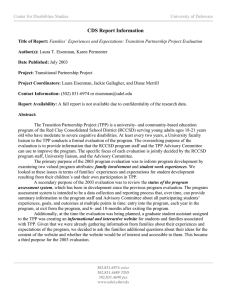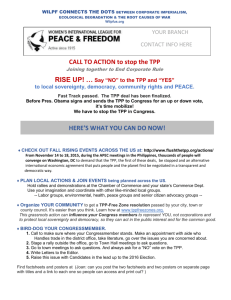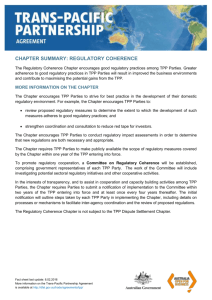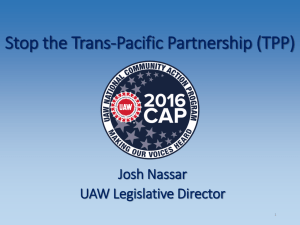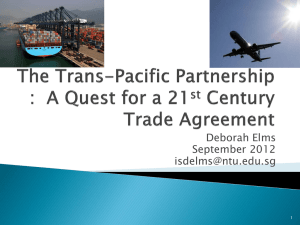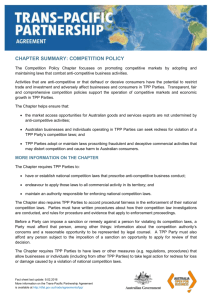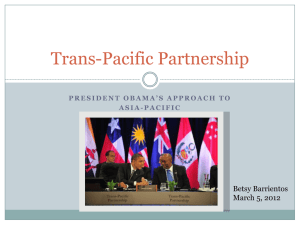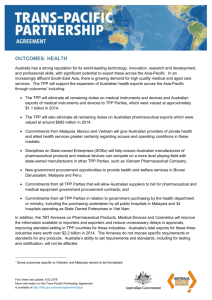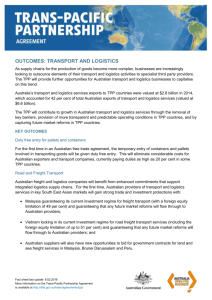Outcomes: Small and medium sized enterprises
advertisement
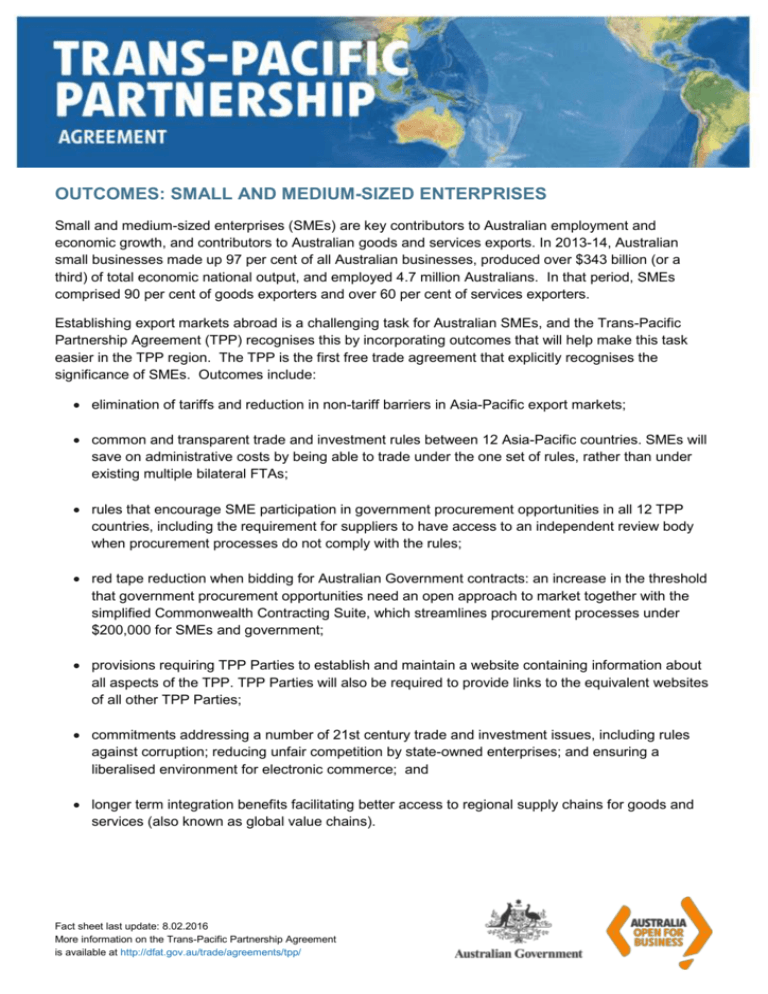
OUTCOMES: SMALL AND MEDIUM-SIZED ENTERPRISES Small and medium-sized enterprises (SMEs) are key contributors to Australian employment and economic growth, and contributors to Australian goods and services exports. In 2013-14, Australian small businesses made up 97 per cent of all Australian businesses, produced over $343 billion (or a third) of total economic national output, and employed 4.7 million Australians. In that period, SMEs comprised 90 per cent of goods exporters and over 60 per cent of services exporters. Establishing export markets abroad is a challenging task for Australian SMEs, and the Trans-Pacific Partnership Agreement (TPP) recognises this by incorporating outcomes that will help make this task easier in the TPP region. The TPP is the first free trade agreement that explicitly recognises the significance of SMEs. Outcomes include: elimination of tariffs and reduction in non-tariff barriers in Asia-Pacific export markets; common and transparent trade and investment rules between 12 Asia-Pacific countries. SMEs will save on administrative costs by being able to trade under the one set of rules, rather than under existing multiple bilateral FTAs; rules that encourage SME participation in government procurement opportunities in all 12 TPP countries, including the requirement for suppliers to have access to an independent review body when procurement processes do not comply with the rules; red tape reduction when bidding for Australian Government contracts: an increase in the threshold that government procurement opportunities need an open approach to market together with the simplified Commonwealth Contracting Suite, which streamlines procurement processes under $200,000 for SMEs and government; provisions requiring TPP Parties to establish and maintain a website containing information about all aspects of the TPP. TPP Parties will also be required to provide links to the equivalent websites of all other TPP Parties; commitments addressing a number of 21st century trade and investment issues, including rules against corruption; reducing unfair competition by state-owned enterprises; and ensuring a liberalised environment for electronic commerce; and longer term integration benefits facilitating better access to regional supply chains for goods and services (also known as global value chains). Fact sheet last update: 8.02.2016 More information on the Trans-Pacific Partnership Agreement is available at http://dfat.gov.au/trade/agreements/tpp/ With an emphasis on promoting the continued growth and development of SMEs, TPP Parties will also cooperate: to assist SMEs to take advantage of the TPP; to exchange experiences on best practices to support SME exporters; to explore opportunities for capacity building opportunities to enhance SME export counselling, assistance and training programs; and to facilitate the development of programs to assist SMEs to participate in, and contribute to, global value chains. Fact sheet last update: 8.02.2016 More information on the Trans-Pacific Partnership Agreement is available at http://dfat.gov.au/trade/agreements/tpp/ 2
